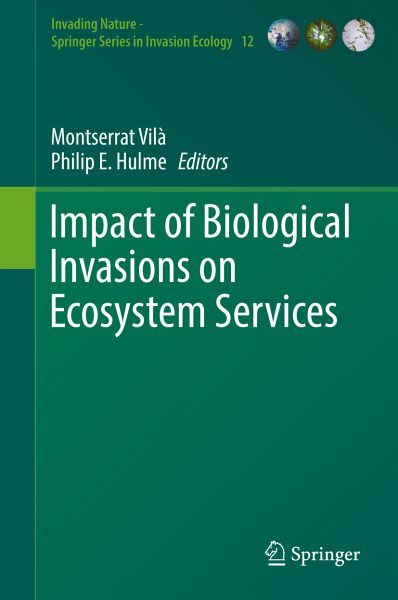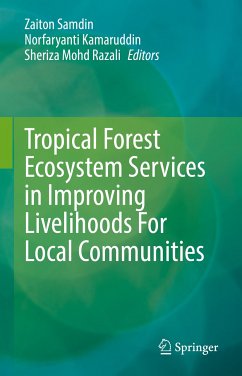
Impact of Biological Invasions on Ecosystem Services (eBook, PDF)
Versandkostenfrei!
Sofort per Download lieferbar
88,95 €
inkl. MwSt.
Weitere Ausgaben:

PAYBACK Punkte
44 °P sammeln!
The book presents an analysis of the ecological, economic and social threats posed by the introduction and spread of non-native species. It provides a comprehensive description of impacts of non-native species from all five kingdoms of life across all ecosystems of the world. New insights into the impacts arising from biological invasions are generated through taking an ecosystem services perspective. This work highlights that management of biological invasions is needed not only to sustain biodiversity and the environment, but also to safeguard productive sectors such as agriculture, forestry...
The book presents an analysis of the ecological, economic and social threats posed by the introduction and spread of non-native species. It provides a comprehensive description of impacts of non-native species from all five kingdoms of life across all ecosystems of the world. New insights into the impacts arising from biological invasions are generated through taking an ecosystem services perspective. This work highlights that management of biological invasions is needed not only to sustain biodiversity and the environment, but also to safeguard productive sectors such as agriculture, forestry and fisheries, as well as to preserve human health and well-being.
Dieser Download kann aus rechtlichen Gründen nur mit Rechnungsadresse in A, B, BG, CY, CZ, D, DK, EW, E, FIN, F, GR, HR, H, IRL, I, LT, L, LR, M, NL, PL, P, R, S, SLO, SK ausgeliefert werden.












